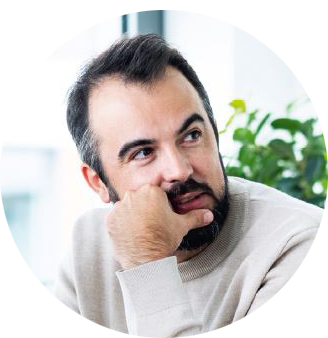How are we doing as regards openness to society?
It’s already been 15 years! In 2009, the Agency was one of the first to sign the French Charter on openness to society, intended for public agencies tasked with research, expert appraisal and risk assessment for health and the environment. Mathieu Baudrin, in charge of relations with stakeholders at ANSES, takes stock of our practices as regards dialogue and openness with organised civil society, and explains how they help to enhance the Agency’s scientific output and its mission to keep the public informed.
Openness to society is one of ANSES's core values. Looking back, why is this principle so important to the Agency?
 Anyone producing knowledge for public action simply cannot ignore the concerns and debates circulating in civil society. As a producer of expert appraisals, ANSES must guarantee its scientific independence while also taking responsibility for, and even organising, debate on this appraisal work.
Anyone producing knowledge for public action simply cannot ignore the concerns and debates circulating in civil society. As a producer of expert appraisals, ANSES must guarantee its scientific independence while also taking responsibility for, and even organising, debate on this appraisal work.
Whether it concerns new genomic techniques, 5G, the effect of social media on teenagers, animal welfare, the spread of insect vectors, environmental contamination or worker health, many of the expert appraisals we carry out address complex health issues that give rise to concerns often reflected in the media at large. Dialogue with stakeholders, organised on the basis of specific processes, crystallises the issues surrounding these questions and clarifies the Agency's scientific work. It also supplements our work by providing other forms of knowledge that are not systematically covered by the scientific literature or databases. Like all fruitful dialogue, it works both ways and is of real benefit to both parties.
To interact with stakeholders, particularly associations, professional organisations and trade unions, the Agency has set up a number of forums for dialogue. The fourth of these — a dialogue committee on biotechnology — was created in 2022. During the health risk assessment process, groups of experts may also interview stakeholders, or even ask them for input when preparing public consultations. At the same time, the Agency needs to ensure that it has an appropriate framework in place, within which it can respond to stakeholder approaches while protecting itself from any attempts to exert influence. In 2020, it strengthened its charter on relations with interested parties (PDF in French).
“The quality of our work goes hand in hand with the quality of the relationships we maintain with our stakeholders.”
Scientific expert appraisal is about producing usable knowledge. What initiatives have you taken to open up research to stakeholders?
We recently proposed meetings between stakeholders and researchers that were supported by the dialogue committees on nanomaterials, radiofrequencies and biotechnologies. The resulting workshops identified a number of key research questions in these areas. A feedback and summary day is planned in early 2025 for workshop participants.
We are also exploring new formats for participatory research. On the issue of air quality, for example, we organised an ‘enhanced feedback’ session in 2023 concerning the expert appraisal on microsensors. On this occasion, the stakeholders held a day-long discussion on the role of citizens in the production of robust knowledge on air quality, culminating in a project to train citizens to carry out air quality measurements, supported by ANSES. Still on the subject of air quality, we are currently funding a research project documenting the forms of citizen participation in the production of knowledge in three major French cities — Marseille, Paris and Strasbourg — and are planning similar initiatives for other themes.
ANSES has set up a number of schemes involving the participatory collection of monitoring data. What is your feedback on that?
Participatory projects to better monitor the presence of insect vectors such as ticks and mosquitoes are one of the Agency’s flagship initiatives. These include the Citique programme and the Tiquojardin project, designed to improve knowledge of the presence of tick species and the pathogens they carry in France. This project has provided additional data in order to determine the environmental factors that influence the presence of ticks in gardens.
These experiments prove that involving the public can help us to take advantage of other ways of investigating emerging phenomena in public health, particularly zoonoses. As for mosquitoes, there are plans to extend the tiger mosquito reporting portal to all mosquito species in order to better anticipate epidemic risks.